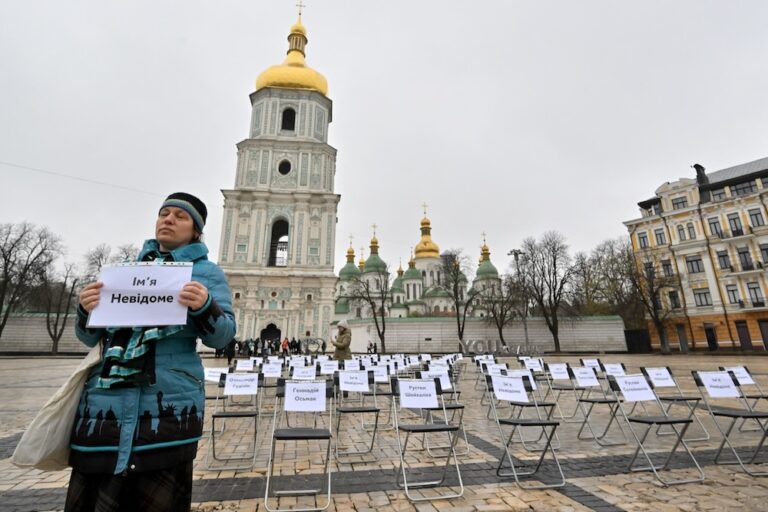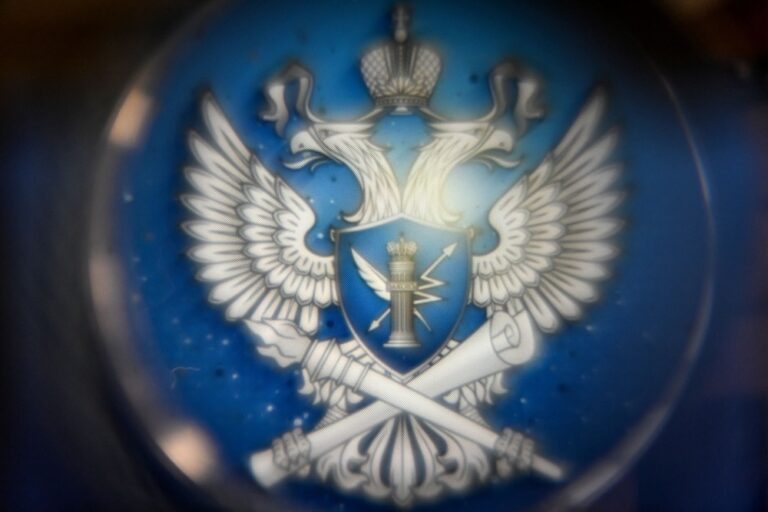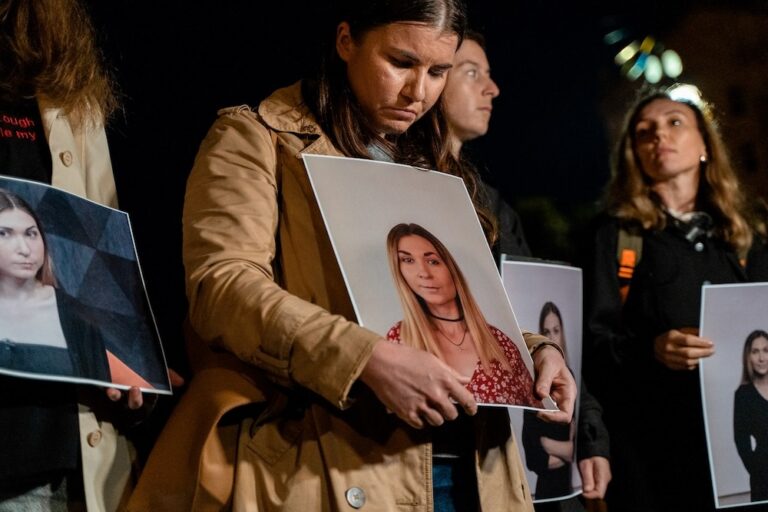Media groups are calling for an end to war propaganda and concrete actions to promote dialogue and confidence between Russian and Georgian journalists.
(IFJ/IFEX) – 10 November 2009 – The International Federation of Journalists (IFJ) today endorsed a joint declaration by the Russian Union of Journalists (RUJ) and the Independent Association of Georgian Journalists (IAGJ) that demands an end to all restrictions to reporting of the Georgian/Russian conflict. They call for an end to war propaganda and concrete actions to promote dialogue and confidence between Russian and Georgian journalists.
“This joint declaration is a major step towards ending the unjustified and enduring restrictions on journalists,” said Aidan white, IFJ General Secretary. “In the face of government obstruction, the professional journalists’ communities are leading the demands for mutual respect for their rights.”
Since the conflict of summer 2008, Georgian journalists have been prevented from accessing the conflict zones of Abkhazia and South Ossetia, while Russian journalists are denied access to the rest of Georgia. Meanwhile both governments continue to block the transmissions of media from either country.
The declaration calls on both governments to respect their obligations under UN Security Council Resolution 1738, that obliges governments to protect journalists in conflict zones. Both unions also demand an independent review of the misuse of media to promoting war propaganda and hate speech.
The IFJ says that the long-term resolution of the conflict and reconciliation between communities in the region can only be achieved when journalists are allowed to report independently, honestly and free of all restrictions.
“I welcome the readiness of our Russian colleagues to develop these crucial joint mechanisms to help journalists from Georgia, Russia and other countries report freely,” said Zviad Pochkhua, President of the IAGJ, “Society inside and outside of militarized regions needs to receive information free of state propaganda as part of the resolution of the conflict.”
“The Russian Union of Journalists has frequently expressed concerns about the media coverage of the Russian Georgia conflict in August 2008. Now we have a serious partner for dialogue in Georgia in the Independent Association of Georgian Journalists and we believe that our co-operation will be useful for developing mutual understanding between our people as a whole and our journalists in particular,” added Mikhail Fedotov, secretary of the Russian Union of Journalists.
The IFJ, RUJ and IAGJ call for the urgent organizing of a meeting between professional journalists on both sides to examine the obstacles and challenges in greater depth that can map out a concrete plan to build dialogue and long-term confidence between professional journalists.
The declaration emerged from a meeting of IFJ affiliates from Eastern Europe and the Caucasus in Berlin to discuss the progress of journalism since the fall of the Berlin wall and ongoing obstacles to professional journalism in the region. Participants highlighted the poverty conditions and lack of minimum working rights under which journalists are forced to work, the levels of corruption in the media that force journalists to produce stories to order, increasing government interference and control, the on-going scandal of impunity for the killers of journalists, and the twin impact of the financial crisis and media restructuring that is undermining the economic model of journalism across the globe.


